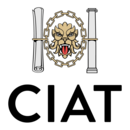Identifying COVID-19 scams
Contents |
[edit] Introduction
UK Finance unveils 10 COVID-19 and lockdown scams the public should be on high alert for and how to spot them.
[edit] Take Five to Stop Fraud
Using the coronavirus pandemic as an opportunity, fraudsters are using sophisticated methods to callously exploit people, with many concerned about their financial situation and the state of the economy. UK Finance reveals 10 COVID-19 and lockdown scams which criminals are using to target people and get them to part with their money.
Some scams manipulate innocent victims, urging people to invest and "take advantage of the financial downturn". Others impersonate well-known subscription services to get people to part with their cash and personal information. Criminals are even posing as representatives from the NHS Test and Trace service in an effort to trick people into giving away their personal details.
To remind people that criminals are experts at impersonating trusted organisations, UK Finance has launched a new animation video urging people to follow the advice of the Take Five to Stop Fraud campaign. Consumers are reminded to always take a moment to stop and think before parting with their money or information in case it's a scam.
[edit] The 10 scams to watch
The 10 scams to be on the lookout for and how to spot them:
1. Criminals have sent fake government emails designed to look like they are from government departments offering grants of up to £7,500. The emails contain links which steal personal and financial information from victims.
2. Fraudsters have also been sending scam emails which offer access to 'COVID-19 relief funds' encouraging victims to fill in a form with their personal information.
3. Criminals have been targeting people with official-looking emails offering a 'council tax reduction'. These emails, which use government branding, contain links which lead to a fake government website which is used to access personal and financial information.
4. Fraudsters are also preying on benefit recipients, offering to help apply for Universal Credit, while taking some of the payment as an advance for their "services".
5. One of the most shocking scams that has appeared during the pandemic has involved using the NHS Test and Trace service, Criminals are preying on an anxious public by sending phishing emails and links claiming that the recipient has been in contact with someone diagnosed with COVID-19. These lead to fake websites that are used to steal personal and financial information or infect devices with malware.
6. Victims are also being targeted by fake adverts for COVID-related products such as hand sanitiser and face masks which do not exist.
7. Criminals are sending fake emails and texts claiming to be from TV Licensing, telling people they are eligible for six months of free TV license because of the coronavirus pandemic. Victims are told there has been a problem with their direct debit and are asked to click on a link that takes them to a fake website used to steal personal and financial information.
8. Amid a rise in the use of online TV subscription services during the lockdown, customers have been targeted by criminals sending convincing emails asking them to update their payment details by clicking on a link which is then used to steal credit card information.
9. Fraudsters are also exploiting those using online dating websites by creating fake profiles on social media sites used to manipulate victims into handing over their money. Often criminals will use the identities of real people to strike up relationships with their targets.
10. Criminals are using social media websites to advertise fake investment opportunities, encouraging victims to "take advantage of the financial downturn". Bitcoin platforms are using emails and adverts on social media platforms to encourage unsuspecting victims to put money into fake investment companies using fake websites.
[edit] Stop, Challenge and Protect
The banking and finance sector is working with the government and law enforcement to help identify scams and prevent people becoming victims of fraud. The industry is also encouraging everyone to remain vigilant and to follow the advice of the Take Five to Stop Fraud campaign, and to Stop, Challenge and Protect when they receive any messages out of the blue:
- Stop: Taking a moment to stop and think before parting with your money or information could keep you safe.
- Challenge: Could it be fake? It's ok to reject, refuse or ignore any requests. Only criminals will try to rush you or panic you.
- Protect: Contact your bank immediately if you think you've fallen for a scam and report it to Action Fraud.
In order to stop a COVID-19 scam, people should be on high alert if:
- The website address is inconsistent with that of the legitimate organisation.
- The phone call, text or emails asks for financial information such as PIN, passwords.
- You receive a call or email out of the blue with an urgent request for your personal or financial information, or to make an immediate payment.
- You're offered a heavily discounted or considerably cheaper product compared to the original price.
- There are spelling and grammar mistakes, or inconsistencies in the story you're given.
Managing Director of Economic Crime at UK Finance, Katy Worobec, said: “During this pandemic we have seen criminals using sophisticated methods to callously exploit people’s financial concerns, impersonating trusted organisations like the NHS or HMRC, to trick them into giving away their money or information. “The banking and finance industry is tackling fraud on every front, investing millions in advance technology to protect customers and working closely with the government and law enforcement to stop the criminal gangs responsible and neutralise the threat. “We would always urge people to follow the advice of the Take Five to Stop Fraud campaign to keep their money and personal information safe from fraudsters.”
This article originally appeared on the CIAT website under the title, "Ten Covid-19 scams the public should be on high alert for". It was published on 30 July 2020.
--CIAT
[edit] Related articles on Designing Buildings Wiki
Featured articles and news
Statement from the Interim Chief Construction Advisor
Thouria Istephan; Architect and inquiry panel member outlines ongoing work, priorities and next steps.
The 2025 draft NPPF in brief with indicative responses
Local verses National and suitable verses sustainable: Consultation open for just over one week.
Increased vigilance on VAT Domestic Reverse Charge
HMRC bearing down with increasing force on construction consultant says.
Call for greater recognition of professional standards
Chartered bodies representing more than 1.5 million individuals have written to the UK Government.
Cutting carbon, cost and risk in estate management
Lessons from Cardiff Met’s “Halve the Half” initiative.
Inspiring the next generation to fulfil an electrified future
Technical Manager at ECA on the importance of engagement between industry and education.
Repairing historic stone and slate roofs
The need for a code of practice and technical advice note.
Environmental compliance; a checklist for 2026
Legislative changes, policy shifts, phased rollouts, and compliance updates to be aware of.
UKCW London to tackle sector’s most pressing issues
AI and skills development, ecology and the environment, policy and planning and more.
Managing building safety risks
Across an existing residential portfolio; a client's perspective.
ECA support for Gate Safe’s Safe School Gates Campaign.
Core construction skills explained
Preparing for a career in construction.
Retrofitting for resilience with the Leicester Resilience Hub
Community-serving facilities, enhanced as support and essential services for climate-related disruptions.
Some of the articles relating to water, here to browse. Any missing?
Recognisable Gothic characters, designed to dramatically spout water away from buildings.
A case study and a warning to would-be developers
Creating four dwellings... after half a century of doing this job, why, oh why, is it so difficult?
Reform of the fire engineering profession
Fire Engineers Advisory Panel: Authoritative Statement, reactions and next steps.
Restoration and renewal of the Palace of Westminster
A complex project of cultural significance from full decant to EMI, opportunities and a potential a way forward.
Apprenticeships and the responsibility we share
Perspectives from the CIOB President as National Apprentice Week comes to a close.


























